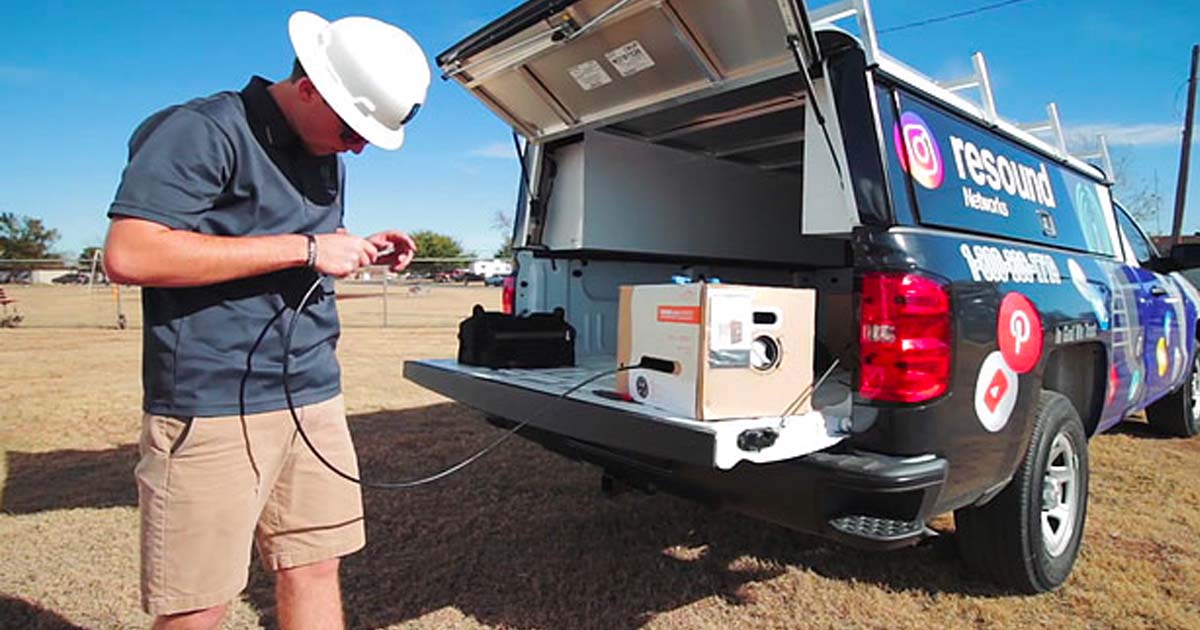Pampa, TX and Milpitas, CA — March 15, 2022 — Resound Networks and Tarana announced today the results of their collaboration toward accelerating Resound’s network buildout in southeast Texas. Resound has been operating next-generation fixed wireless access (ngFWA) networks using Tarana’s G1 platform for the past 12 months, enabling a thorough assessment of G1’s performance in a range of real-world conditions. Based on their experience with the platform, the Resound team has overhauled their network expansion strategy, opting for a majority G1-powered design. This will yield very substantial improvements in their plan to fulfill RDOF commitments and bring healthy competition to un- and under-served rural and suburban communities in a 46,000 square mile area around Houston, Austin, San Antonio, Victoria, and Corpus Christi. These markets include some of the most broadband-starved rural households and communities in the state.
The improvements in Resound’s plan made possible by G1 include:
- 40% reduction in the number of towers required for full coverage,
- 50% reduction in installation complexity and time per tower,
- 50% reduction in overall deployment schedule (from over 6 years to less than 3),
- 6x more subscriber capacity per tower,
- >3x higher real-world end-subscriber speeds — supporting plans up to 1 Gbps,
- rapid, full-scale market entry into large suburban markets that are impossible to serve with existing FWA technology, and
- substantial reduction in network maintenance and customer support calls, given G1’s strong immunity to interference and changes in the radio environment.
These improvements are relative to plans built around previous-generation FWA products. G1 is the first implementation of ngFWA, powered by technology specifically designed to support high-capacity broadband to homes even in harsh environments (with noisy spectrum and prevalent non-line-of-sight links). The technology foundations of prior FWA solutions were designed for mobile or local indoor networking applications (4G/5G or Wi-Fi). G1 is the first platform designed exclusively to meet large-scale fixed wireless requirements, which involve much higher bandwidth than mobile and much more challenging link conditions than indoor networking.
Resound’s founder and CTO, Chadd Giles, commented, “We’ve been very impressed by G1’s performance in the field and Tarana’s engagement with us. We’re excited about the acceleration of our buildout and the new competitive capabilities it’s enabling.”
Tarana’s founder and CTO, Dale Branlund, added, “We’re thrilled to see Resound bringing to life new possibilities with G1 — especially with such speed and scale. We’re looking forward to supporting their network build and subscriber growth in the coming months and years.”
To register interest in Resound service, please visit https://resoundnetworks.com. To learn more about G1, visit https://www.taranawireless.com.
About Resound Networks
Resound Networks was founded in 2015 as a rural-focused ISP determined to close the digital divide. The company is based in Pampa, Texas, and its carrier-class network provides coverage to over 300,000 homes throughout Texas, Oklahoma, and New Mexico. Resound plans to expand its network coverage to multiple neighboring states beginning in 2022, funded in part by the $311M awarded to the company in the FCC’s Rural Digital Opportunity Fund auction. For more information visit www.resoundnetworks.com
About Tarana
Tarana Wireless, Inc. is the industry’s performance leader and new category creator in next-generation fixed wireless access network solutions, powered by a number of well-proven breakthroughs in precise, multidimensional optimization of radio signals. Its G1 ngFWA platform overcomes previously insurmountable network economics challenges for service providers in both mainstream broadband and underserved markets, using free unlicensed spectrum. Commercial deployments of G1 have exploded from zero to 3 million households passed in its first year of production. The company is headquartered in Milpitas, California, with additional research and development in Pune, India.
